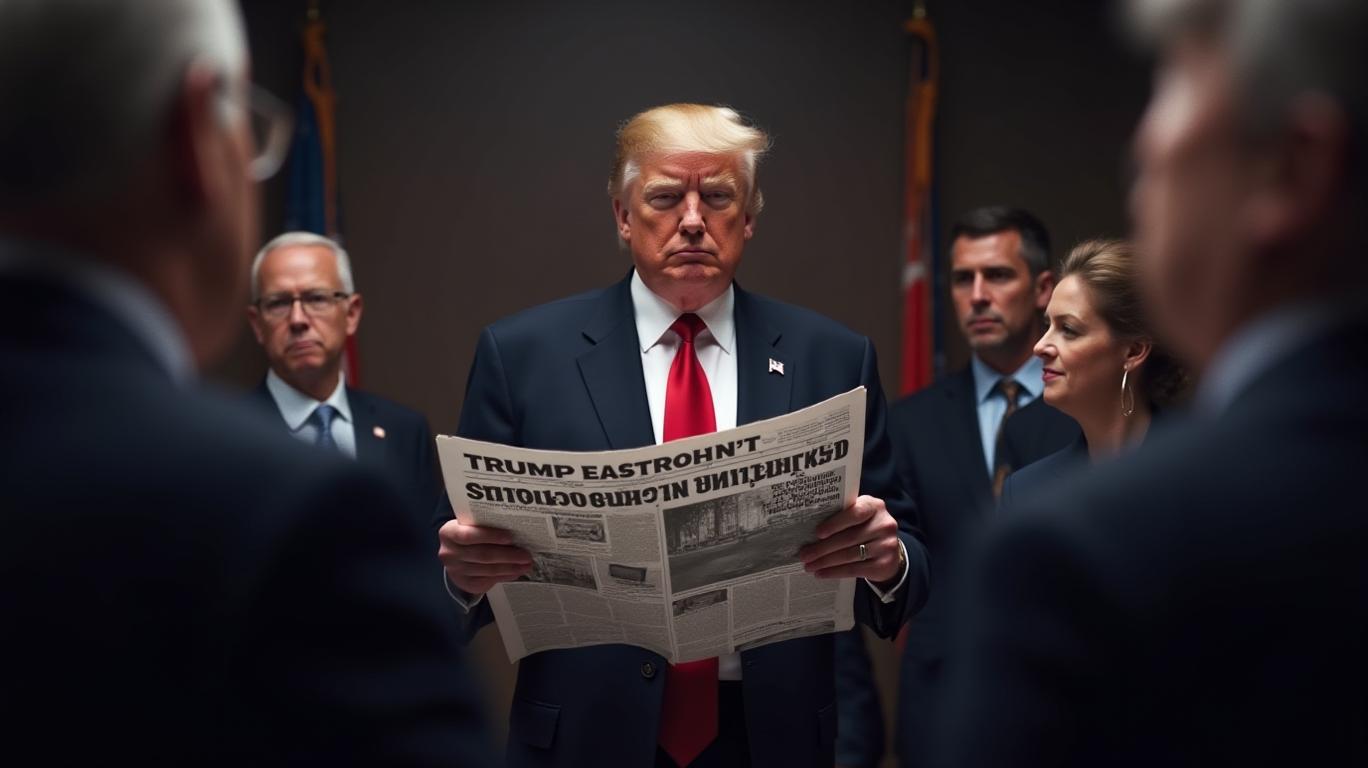Trump's Tariff Shift Targets Electronics, Semiconductors
The U.S. government, under President Donald Trump, has announced a significant shift in its tariff policy, particularly affecting the electronics industry. Trump stated that his administration will focus on semiconductors and the entire electronics supply chain during the upcoming national security tariff investigation. This investigation, conducted under Section 232 of the 1962 Trade Expansion Act, could have far-reaching implications for the global electronics market.
Trump's recent announcement has added complexity to the ongoing trade tensions. Despite the previous week's announcement of tariff exemptions, the latest statement indicates that popular electronic products such as smartphones and computers will still face tariff impacts. This move effectively diminishes the significance of the earlier exemption policy, as it suggests that the U.S. is playing a strategic game with its tariff classifications.
The U.S. Commerce Department will conduct the investigation, which could lead to further adjustments in tariff policies. This development underscores the U.S.'s determination to scrutinize the electronics supply chain comprehensively. The investigation aims to assess the impact of imports on national security, potentially leading to new tariffs or other protective measures.
The electronics industry, which relies heavily on global supply chains, is likely to face significant challenges. Companies that manufacture and distribute electronic products will need to adapt to the changing tariff landscape. This could involve restructuring supply chains, seeking alternative sourcing options, or negotiating with U.S. authorities to mitigate the impact of new tariffs.
The U.S. government's decision to focus on semiconductors and the electronics supply chain highlights the strategic importance of these components in modern technology. Semiconductors are essential for a wide range of electronic devices, from smartphones to computers, and their supply chain is highly globalized. Any disruption in this supply chain could have ripple effects across various industries, affecting both manufacturers and consumers.
The ongoing trade tensions between the U.S. and its trading partners, including China, have already led to significant disruptions in global supply chains. The latest move by the U.S. government adds another layer of complexity to these tensions, as companies grapple with the potential impact of new tariffs on their operations.
In response to the U.S. tariff policies, companies in the electronics industry may need to consider diversifying their supply chains to reduce reliance on any single market. This could involve investing in manufacturing facilities in different regions or exploring new partnerships with suppliers. Additionally, companies may need to engage in more proactive communication with U.S. authorities to understand the potential impact of new tariffs and to advocate for policies that support their operations.
The U.S. government's decision to conduct a comprehensive review of the electronics supply chain underlines the importance of national security considerations in trade policy. As the global economy becomes increasingly interconnected, the U.S. is taking steps to ensure that its supply chains are resilient and secure. This approach could have implications for other industries as well, as the U.S. continues to prioritize national security in its trade policies.
In conclusion, the U.S. government's announcement of a comprehensive review of the electronics supply chain is a significant development in the ongoing trade tensions. Companies in the electronics industry will need to adapt to the changing tariff landscape and consider strategies to mitigate the impact of new tariffs. The focus on semiconductors and the electronics supply chain highlights the strategic importance of these components in modern technology and underscores the U.S.'s commitment to national security in its trade policies.

Stay ahead with real-time Wall Street scoops.
Latest Articles
Stay ahead of the market.
Get curated U.S. market news, insights and key dates delivered to your inbox.



Comments
No comments yet